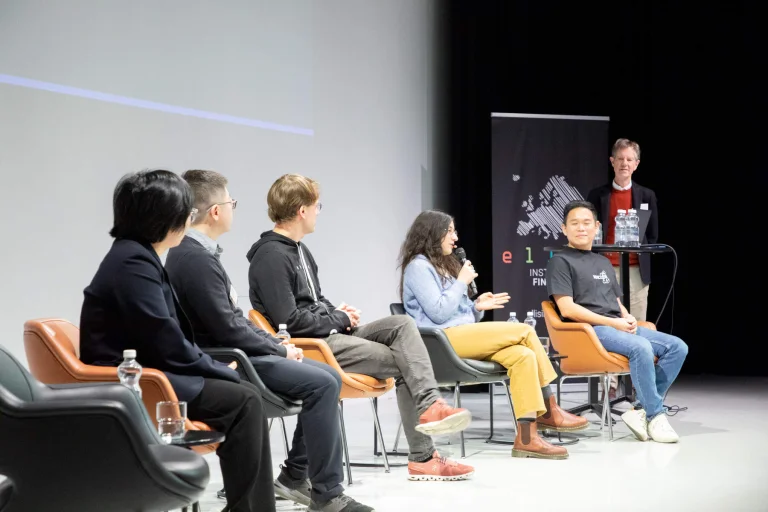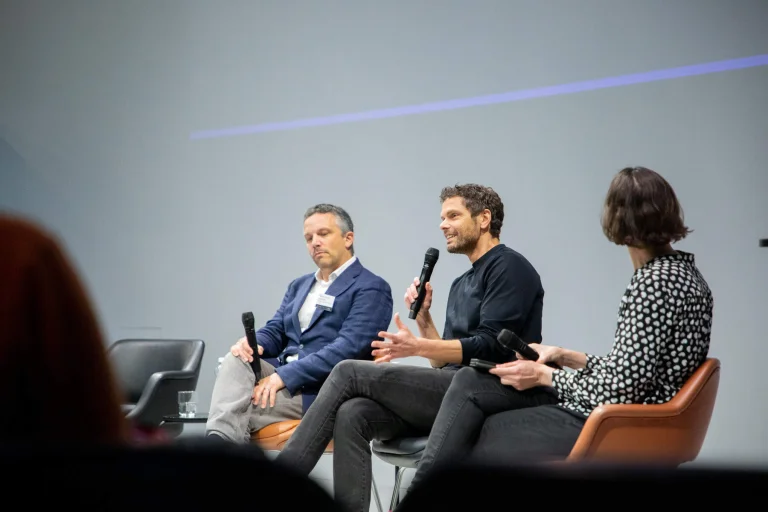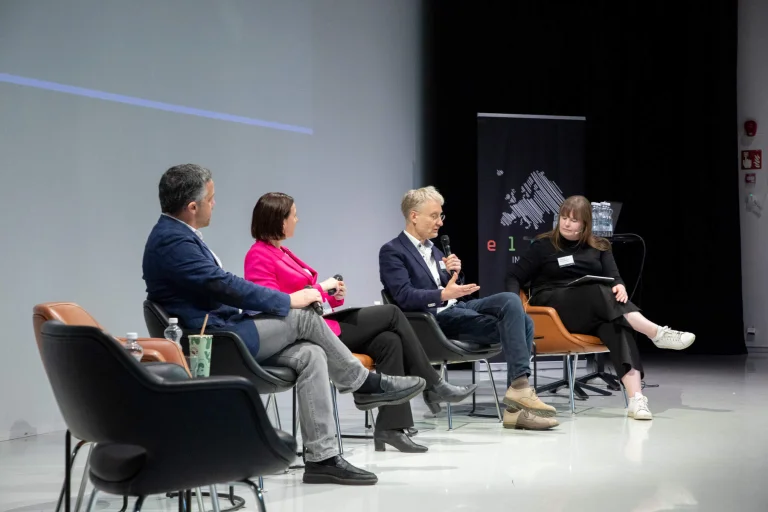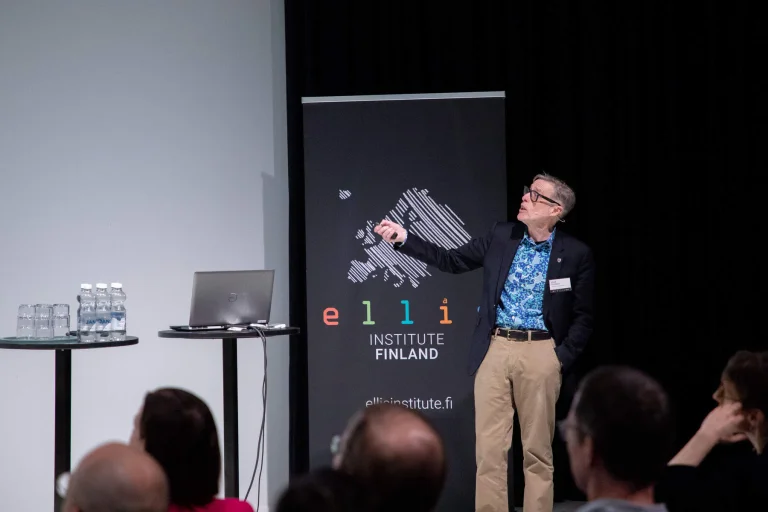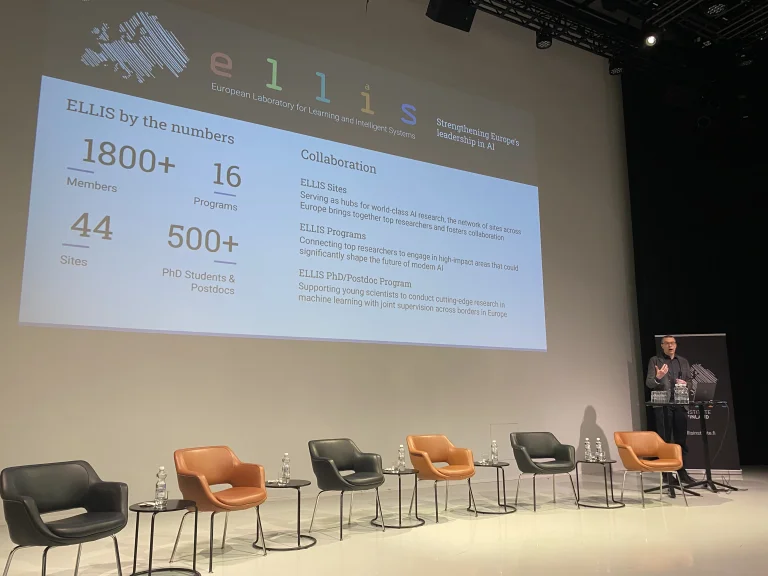



ELLIS Institute Finland's Vision—From AI Fundamentals to Applications: Insights from the Scientific Launch Seminar
The official opening of ELLIS Institute Finland on November 17th in Turku, Finland, was followed by a research-focused scientific seminar at Aalto University in Espoo on November 18th featuring keynote talks, short presentations, and discussions on methodological advances and Europe’s scientific agenda in AI.
In the opening remarks, Founding Director of ELLIS Institute Finland Samuel Kaski (ELLIS Board Member, Aalto University & University of Manchester) outlined the Institute’s research mission and its role within the broader ELLIS network.
Kaski said, “With the launch of ELLIS Institute Finland, we now have a dedicated environment where fundamental AI research and its scientific applications can advance side by side. This seminar reflects the kind of work we aim to foster: rigorous methods, open exchange across disciplines, and collaborations that help Europe build and sustain long-term strength in AI for science.”
John Shawe-Taylor (ELLIS Fellow, University College London) acted as Master of Ceremonies for the Scientific Seminar.
Keynote Talks and Short Presentations
Giada Pistilli (Hugging Face) presented empirical evidence on how emotional attachment to AI systems emerges, showing that foundation models tend to produce companionship-reinforcing behaviours and highlighting risks where user empathy increases precisely when caution is warranted.
Kyunghyun Cho (New York University) discussed “learning to learn” approaches in optimisation and causal discovery, arguing that large-scale targeted cause discovery reduces to supervised learning under suitable formulations.
Florence d’Alché-Buc (ELLIS Board Member, Institut Polytechnique de Paris) presented graph-valued regression methods grounded in optimal transport, introducing scalable relaxed-matching techniques, amortised losses, and science-informed constraints with applications such as metabolite identification.
Andrea Ganna (ELLIS Member, University of Helsinki) presented his work on disease prediction using AI models that integrate nation-wide Finnish health registries with large-scale genetic data. His team aims to identify individuals at high cardiometabolic risk long before symptoms appear, enabling earlier and more effective prevention. This approach leverages Finland’s uniquely rich data resources to advance precision public health.
Mark Girolami (ELLIS Fellow, The Alan Turing Institute) outlined “autoencoders in function space,” showing how function-space VAEs and related architectures offer new ways to model 3D structures and other complex data, drawing connections to PCA-style methods and diffusion-based generative models.
Three new ELLIS Institute Finland faculty gave short talks on their work:
Eric Malmi (ELLIS Member, ELLIS Institute Finland, Aalto University, Google DeepMind) showed how scaling test-time compute allows LLMs to perform better strategic reasoning in board-game settings without additional pre-training.
Qi Chen (ELLIS Institute Finland, Aalto University) outlined research directions in controllable and efficient generative models for scientific discovery, focusing on reducing memorisation and hallucination to improve generalisation, with applications in molecule design.
Jiancheng Yang (ELLIS Member, ELLIS Institute Finland, Aalto University) introduced methods for spatial intelligence in healthcare, demonstrating atlas-segmentation via image-mask diffusion and strategies to adapt unconditional generative models for conditional clinical tasks.
Fireside Chat & Panel Discussion
Amanda Alvarez, Communication Manager at ELLIS Institute Finland, moderated a fireside chat with Serge Belongie (ELLIS Board President, University of Copenhagen) and Peter Sarlin (AMD Silo AI, Foundation PS) who both emphasised that talent concentration and strong research–industry ecosystems are decisive for European AI competitiveness, noting fragmentation risks and the need for clearer strategic ambitions and communication across ELLIS.
The panel discussion on Europe’s Agenda for AI in Science was moderated by Jessica Montgomery (ai@cam, University of Cambridge) and included Laura Ruotsalainen (ELLIS Member, ELLIS Institute Finland, University of Helsinki) who highlighted challenges around uncertainty, cross-disciplinary communication, and sustainability in future AI development. Additionally, Max Welling (ELLIS Fellow, University of Amsterdam, CuspAI) argued for open data, large-scale European research infrastructures, and stronger industrial support, stressing the importance of energy-aware AI. And finally, Belongie called for integrating AI more directly into scientific workflows, balancing applied and foundational research, and scaling support for ELLIS programs as a shared European asset.
Ruotsalainen, who is also the Vice-Chair of ELLIS Institute Finland said, “Through ELLIS Institute Finland, we are building a research ecosystem that brings together universities across the country in a way that is both coordinated and mutually strengthening. The model we are shaping here—shared infrastructure, deep collaboration, and aligned long-term ambitions—can serve as an example for how other regions in Europe might accelerate scientific progress in AI through collective effort.”
Together, the seminar’s contributions underscored the Institute’s role as a hub for rigorous, collaborative research at the intersection of AI and the scientific disciplines it aims to advance.
Check out photos from the Scientific Seminar and the Opening Ceremony on ELLIS Institute Finland’s website and those below. Some photos by Matti Ahlgren/Aalto University.

